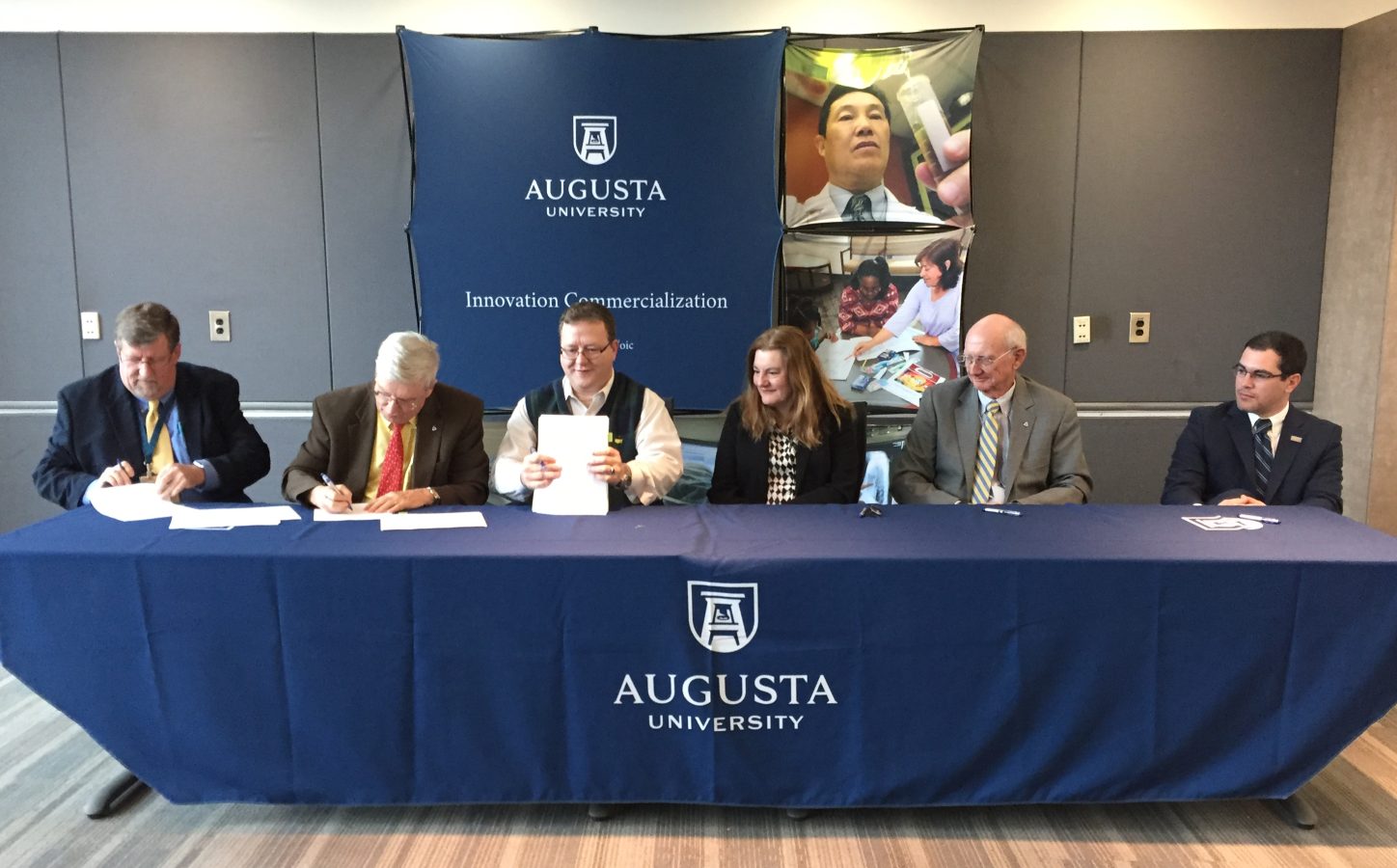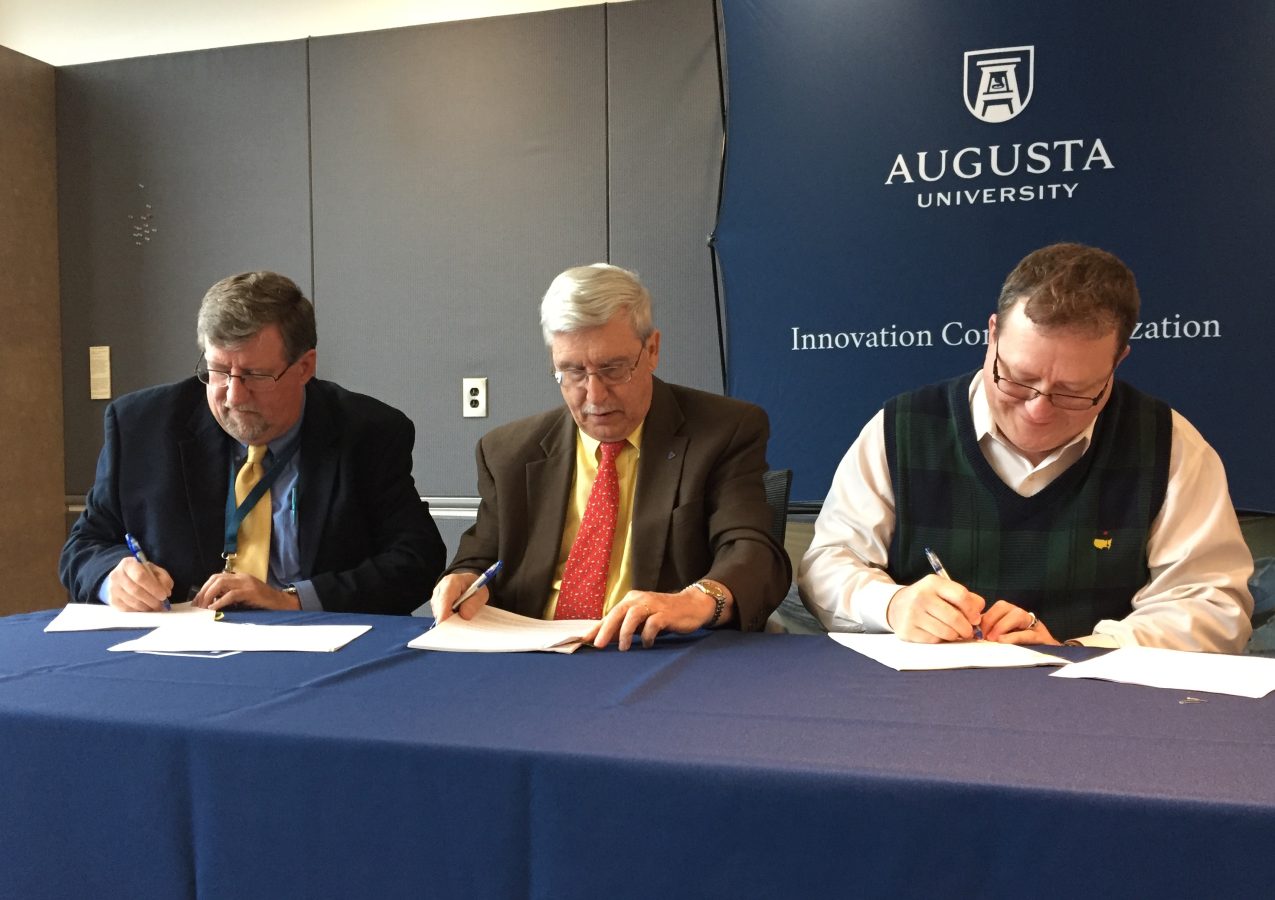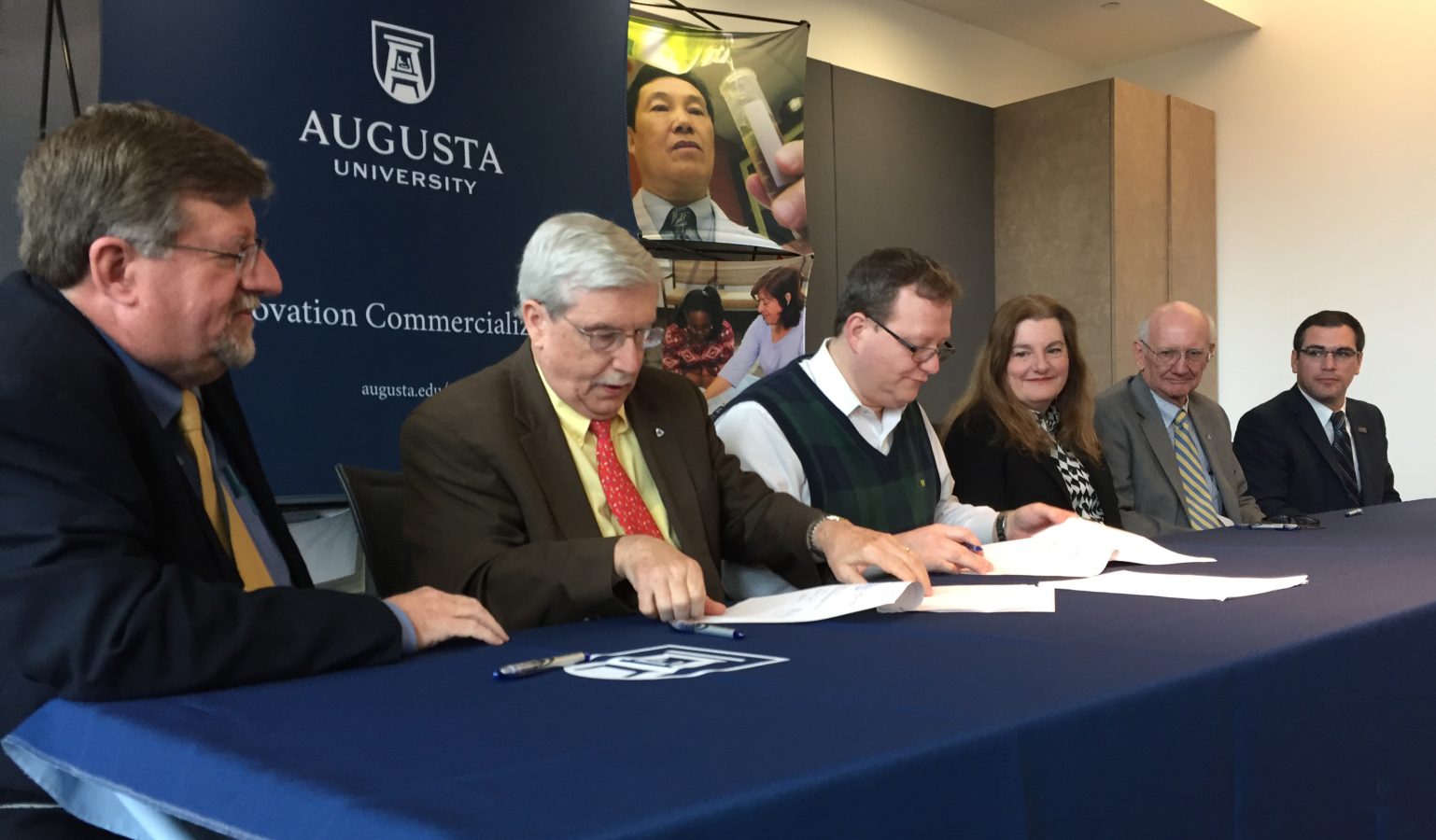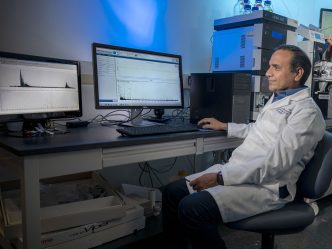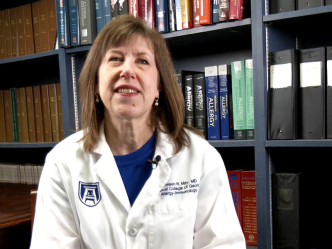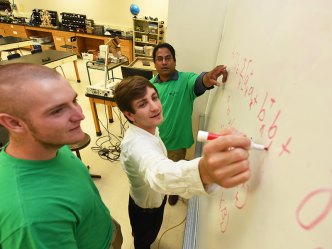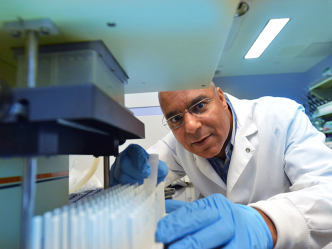Local researchers launch biotech startup to develop novel medical uses of tiny glass microspheres
A microscopic structure that has been used in ketchup could be the key to revolutionizing medical procedures, including cancer treatment, according to a team of researchers from Augusta University, the Applied Research Center and Savannah River National Laboratory.
In some ketchup formulas, silica has been used to control the consistency of the condiment, thinning it out when the bottle is shaken.
In the human body, a modified version of the compound known as glass microspheres could be used to deliver medication on target, releasing the drug at will and on a schedule, according to research by Dr. George Wicks, a materials scientist at Applied Research Center, Dr. Paul Weinberger, former otolaryngology surgeon at Augusta University, and Dr. William Hill, professor of cellular biology and anatomy at the Medical College of Georgia at Augusta University.
Based on their experiments, the three researchers founded SpheroFill, a new biotech company aimed at developing the microspheres for biomedical use. The company was created with the help of Augusta University’s Office of Innovation Commercialization, Savannah River National Laboratory and Applied Research Center.
Originally invented at Savannah River National Laboratory and improved upon by the Applied Research Center, work on the microspheres began as a project focused on developing an improved system for hydrogen isotope separations and national security uses.
“The main goal of our company is to improve the health and lives of people with this technology,” said Weinberger, who is also an alumnus of the university’s Medical College of Georgia. “This is another step in making the dream that started at Savannah River National Laboratory a reality. It was visionary and fantastic of the Department of Energy to let us take a technology initiated for National Security into a new and exciting field. They really made all this possible.”
The uniqueness of the glass microspheres lies in their porous shell. Measuring about one third the diameter of a human hair, the microspheres have even tinier pores, which are considered a new type of nanotechnology. These pores are interconnected by nano-tunnels that can be sealed and unsealed at will.
“This really represents a very exciting, new class of composite materials developed by an interdisciplinary team,” Wicks said. “In each of the areas of the medical profession, there seems to be a whole host of potential uses.”
Initially, the three researchers plan on using the microspheres as fillers to replace vocal cord tissue lost due to aging or nerve injury. Eventually, they plan to load the hollow structures with medication and enhance them with a bioactive coating. The microspheres can then be injected locally and programmed for a controlled release of drugs.
“It’s an innovative technology with commercial potential that was only made possible through collaboration between a team of researchers and the support and work of Savannah River National Laboratory, Applied Research Center and Augusta University,” said Carl Clark, director of the Office of Innovation Commercialization at Augusta University. “We are ready to support this new biotech startup, and we are excited to see what this talented, interdisciplinary team of researchers are going to accomplish in the next few years and in the next few decades.”
Future applications of this new nanotechnology will include plastic surgery, muscle and bone repair, and cancer treatment.
“One of the real advantages of being able to do things very specifically and locally, for example treating a tumor, is that we can use higher doses of a chemotherapy drug within a very limited area without having side effects common in a systemic treatment,” Hill said. “Cancer treatment is a big thing in the future for us.”
 Augusta University
Augusta University
